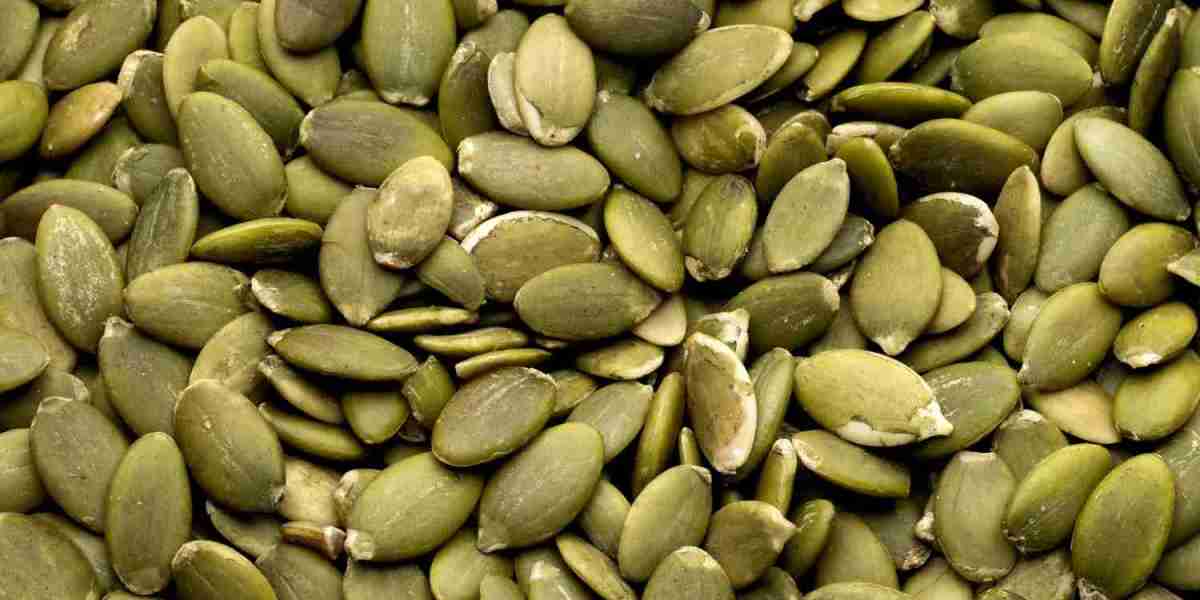Full of all kinds of heart- and gut-healthy nutrients, it's easy to forget that pumpkin seeds are also a major source of plant-based protein.
Pumpkin seed protein has been popping up in products like protein powders, bars and shakes more and more over the last few years, says Natalie Rizzo, registered dietitian and TODAY.com nutrition editor.
It's often marketed towards people who are avoiding whey, soy or nut-based protein products because it's "an allergy friendly protein," she says.
There aren't as many peer-reviewed studies about pumpkin seed protein benefits as there are for options like whey or soy protein shakes, powders, and bars, Rizzo says, because it's a newer addition to the market. But we know pumpkin seeds are a healthy option for many reasons.
"Because it's coming from pumpkin seeds, (pumpkin seed protein products are) rich in protein, minerals and fiber," Theresa Gentile, a registered dietitian in New York City and a spokesperson for the Academy of Nutrition and Dietetics, tells TODAY.com.
"It's a good plant-based choice for someone who doesn't want to have whey protein or casein protein in something like a protein bar," she adds.
If you're thinking of trying out pumpkin seed protein, here's what dietitians want you to know.
Pumpkin seed protein benefits
Essential amino acids
All protein is made up of amino acids. There are nine amino acids that our bodies can't make on their own, which means we need to get them from food.
Pumpkin seed protein contains all nine of those essential amino acids, the experts say. But because a few of those amino acids are present in smaller amounts, it's not technically considered a complete protein, which is generally the case for all plant-based proteins.
Pumpkin seeds have 8.5 grams of protein per ounce serving, compared to 10 to 20 grams per serving in pumpkin seed protein powder.
"It has lots of good quality protein, but it's pretty low in two of those amino acids: methionine and tryptophan," Gentile says.
As long as you're eating a variety of foods throughout the day, that's not necessarily a problem, Rizzo says. "Even if you are completely vegan, if you eat seeds with legumes, you'll get enough of those essential amino acids."
Gut-healthy fiber
Regular pumpkin seeds contain a good amount of fiber, especially if eaten with the shells, Gentile says.
With the shells, an ounce of roasted pumpkin seeds provides about 5 grams of fiber compared to about 2 grams for shelled pumpkin seeds, according to the American Heart Association. But they may lose some of that fiber when they're ground down into a protein powder.
All protein powders are "heavily processed" in one way or another, Rizzo says. "So you're going to strip out some of the fiber for sure." Depending on the brand of protein powder you're using, you may see 1 gram or more of fiber per serving in the product.
Healthy fats
Nuts and seeds, including pumpkin seeds, are a great source of healthy omega-3 fatty acids, Gentile says.
Omega-3s support the health of your heart and blood vessels as well as your immune system and hormone systems, the National Institutes of Health explain. They also provide some anti-inflammatory benefits as well, Gentile says.
Magnesium and other nutrients
Pumpkin seeds boast large amounts of several other beneficial nutrients, including antioxidants, iron, phosphorous, zinc and magnesium.
The magnesium is a particular "highlight" of pumpkin seed protein because it provides more than you'd get from other plant-based protein sources, Rizzo says. "Pumpkin seeds are naturally rich in magnesium, which is a nutrient that a lot of people don't get enough of," she explains.
Magnesium is beneficial for heart and bone health as well as blood sugar management.
Pumpkin seeds in protein powder blends
You won't always see pumpkin seed protein on its own. Sometimes companies mix it with other plant-based protein sources — like pea protein, chickpea protein or nut butters — to complement the nutrients it provides.
"The benefit of mixing it with other (plant-based protein) powders is you're getting a little bit of good stuff from everything," Gentile says.
That's also a way for companies to "get all the amino acids in there in good amounts," Rizzo says. So if you're concerned about missing out on any of those, a supplement that contains a blend of plant-based protein sources may be a good option.

